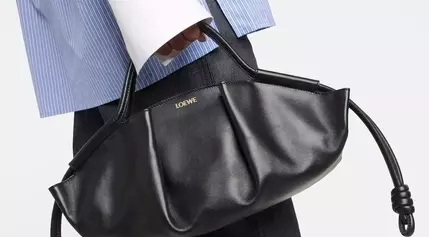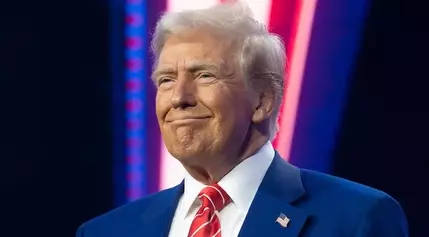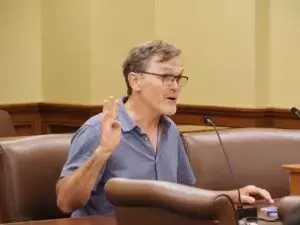Unprecedented Sentencing: Trump's Legal Future Hangs in the Balance
A pivotal moment looms as President-elect Donald Trump faces sentencing for his involvement in a controversial hush money case. Scheduled for January 10th, this legal proceeding has ignited debates over justice, politics, and presidential immunity. Judge Juan Merchan's decision to proceed with the sentencing despite calls for postponement has set the stage for an unprecedented chapter in American legal history.
The Verdict Could Reshape Presidential Powers
Judicial Proceedings and Public Reaction
The courtroom drama surrounding Donald Trump's sentencing is unfolding against a backdrop of intense public scrutiny. On January 10th, at 9:30 a.m. EST, Trump will stand before Judge Juan Merchan in New York City, marking a significant milestone in a case that has captivated the nation. The jury's guilty verdict on 34 felony counts related to falsified business records has placed Trump in uncharted territory. Even prosecutors acknowledged the impracticality of incarcerating a president-elect, leading to speculation about the potential outcomes.Merchan's inclination towards an unconditional discharge—a rare legal maneuver—suggests that Trump may avoid traditional penalties. This approach would acknowledge his conviction without imposing imprisonment or fines, reflecting the complex interplay between judicial principles and political realities. Despite the judge's leanings, the final decision remains uncertain, leaving observers on edge.Potential Implications and Legal Precedents
The ramifications of Trump's sentencing extend far beyond the immediate legal consequences. An unconditional discharge would still formalize Trump's status as a convicted felon, opening avenues for appeal. This scenario underscores the unique challenges faced by a sitting president navigating the judicial system. Historically, presidents have been shielded from prosecution while in office, but Trump's case introduces new dimensions to this precedent.Moreover, the legal landscape is further complicated by ongoing appeals. Trump's team has sought to halt the sentencing process, arguing that it jeopardizes the presidency. The appeals court's response could significantly impact the timeline and outcome of the proceedings. If successful, these efforts might delay sentencing until after Trump leaves office, adding another layer of uncertainty to the situation.Conviction Consequences and Presidential Limitations
A conviction, even with minimal penalties, carries substantial implications for Trump's presidency. As a convicted felon, he faces certain restrictions, such as being barred from serving on a jury or owning firearms. More critically, travel limitations imposed by several countries could affect his international engagements. While special permissions can be granted, these hurdles highlight the practical challenges of governing under such conditions.Countries like Australia, Canada, China, Japan, and the United Kingdom have strict entry policies for convicted felons. Trump's ability to navigate these restrictions will test diplomatic channels and underscore the unprecedented nature of his legal predicament. The historical context of past presidents facing similar issues provides a framework for understanding the potential solutions, but each case brings its own set of unique challenges.Legal Boundaries and Presidential Authority
The question of self-pardon remains a contentious issue in constitutional law. Although Trump cannot pardon himself in state court cases, the broader debate around executive power persists. The Justice Department's stance, established during Watergate, asserts that presidents lack the authority to pardon themselves in federal cases. However, this principle has never been tested in practice, leaving room for future legal battles.In contrast, Trump's two federal cases were dismissed following the Justice Department's policy against prosecuting sitting presidents. This development highlights the delicate balance between legal accountability and the functioning of government. As Trump's other legal challenges continue to unfold, particularly in Georgia, the legal community watches closely for any shifts in judicial strategy or policy interpretation.Public Perception and Political Fallout
Beyond the courtroom, the public's perception of Trump's sentencing will shape political discourse. Supporters and critics alike are keenly aware of the symbolic weight carried by this legal milestone. The outcome will not only influence Trump's legacy but also set precedents for future presidents. The media's coverage, public opinion polls, and legislative responses will all play crucial roles in determining the long-term impact of this historic event.As the nation awaits the resolution of this legal saga, the intersection of justice and politics remains a focal point. The coming days promise to reveal more about the boundaries of presidential power and the resilience of the American legal system. Whether through an unconditional discharge or alternative measures, Trump's sentencing will undoubtedly leave a lasting mark on the annals of U.S. history.



















